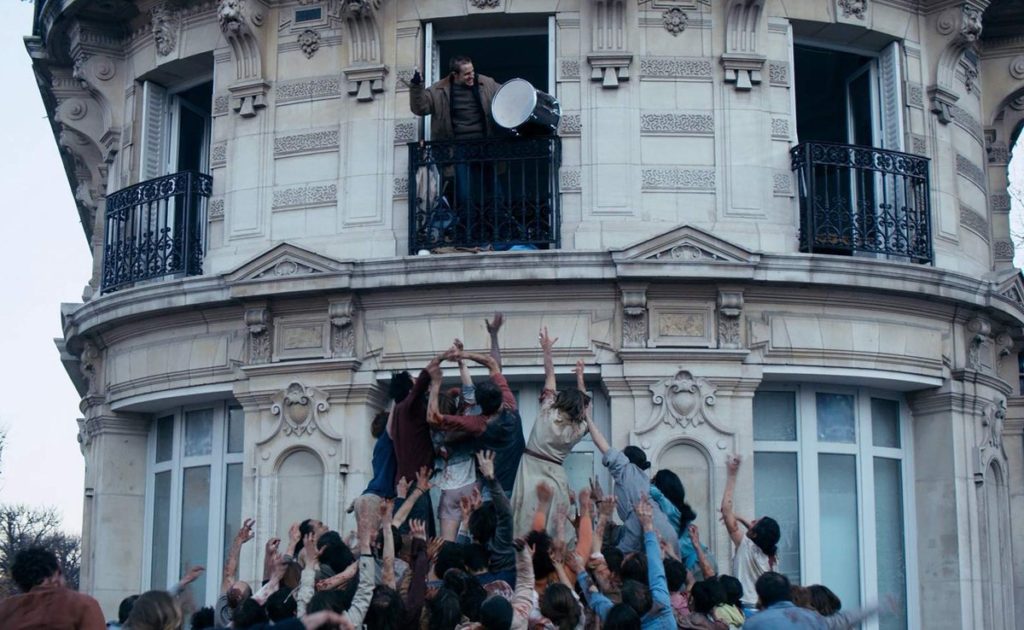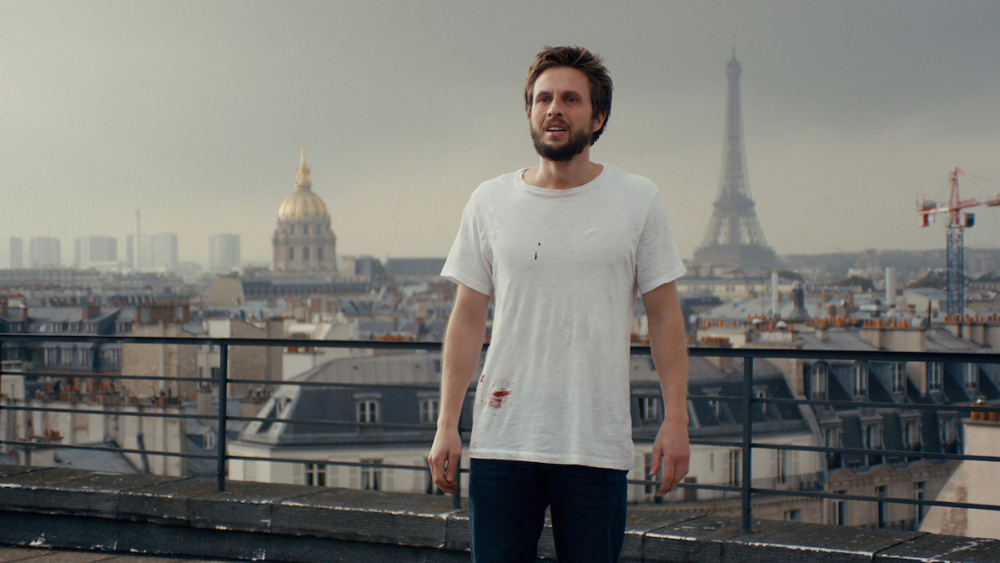Summary
La nuit a dévoré le monde, or The Night Eats The World, is a character study around coping with change and loneliness. Also, a fresh French zombie film for those who are more into music than horror.
Every other zombie film released is said to bring a new perspective to the subgenre, or reimagine it, etc. There have been many films – good and bad – in recent years that demonstrate a fresh approach to zombie films (The Battery, Colin, Train to Busan, Harold’s Going Stiff, Maggie, One Cut of the Dead, etc.): La nuit a dévoré le monde (The Night Eats the World) is one such film, and definitely one of the better examples.
La Nuit/The Night (I’m going to call it The Night, if that’s OK) is the story of Sam, who goes to visit his ex-girlfriend to pick up a box of tapes, only to find a party in progress. Not what he came for, so he settles in a quiet room to rummage for his stuff and wait for the chance to chat. But she’s so engaged in the party that he falls asleep… only to wake the next morning to a seemingly empty building; not just empty, but trashed, with signs of a riot pretty much everywhere. You guessed it: he slept through the start of “the zombie apocalypse” and there is no other living person in sight.
Despite that introduction, this isn’t a film about zombies; though of course, there are quite a few. It isn’t full of violence or gore; though yes, there is some. The Night Eats the World is a story about survival and about coping, with a radical change in circumstances, and with loneliness: it’s been compared to Robinson Crusoe, and – of course – I am Legend. Consequently, Sam (Anders Danielsen Lie) is given plenty of personality. He is intelligent, creative and pragmatic; and he goes through a fascinating change curve, especially considering there was no warning.
This is the first feature directed by Dominique Rocher, who also co-wrote the screenplay (with co-writers Jérémie Guez and Guillaume Lemans), based on the novel by Pit Agarmen. Neither the script nor the acting is perfect, but both are more than sufficient to carry a very simple story. The strength of the writing is in imaginative details (rather than dialogue), and particularly in the character of Sam. Lie’s acting shines when his character is facing renewed stress, or making a new discovery about his situation (which always touches a believable nerve): we can see how he’s feeling throughout, and feel it with him, he doesn’t have to actually explain much at all.

Sam is not the gung-ho military sort, nor the ignorant teenager who we often find in horror films – but then it’s not really that kind of film – he’s intelligent and creative, both of which characteristics see him through. He has the intellect to take stock of his space and his supplies, and the imagination to look ahead. He looks after his own needs to relieve boredom with games, music and considering the lives of his new home’s late occupants. And he is strikingly respectful to them: after all, if not him, then who?
The Night Eats the World is a thoughtful film (featuring a very thoughtful protagonist), similar in style and pace to The Battery (though that one had two protagonists). But what really makes it is the music. I’m talking about occasional subtle background score by David Gubitsch; and just as much (if not more so) the music within Sam’s story itself. There are a few scenes where he makes music, once letting rip with drums, and once using things he has found around the place – a favorite scene – and another where another survivor he has met joins in too.
Because of the thoughtful pace and the use of music and sound, I would say this is a zombie film for those who don’t usually like horror, rather than for those who do. Some who have watched The Night Eats the World expecting action, battles and tonnes of gore have called it dull. Not me: I like zombie films, but more than that, I like variety. There’s a wide range in my top ten, and The Night has just joined the list.
Before I wrap up, a word about the zombies themselves. By appearance, they are reasonably traditional, and the make-up effects are excellent. Unusually though, they respond to sound more than smell… And more unusually, they make hardly any sound themselves. No groaning or growling. This is very sinister and makes the risk of surprise attacks more viable and scarier. Very cleverly, this silence also contributes to the use of sound in the film as part of the Paris landscape. The sound of silence is an eerie and lonely one.



